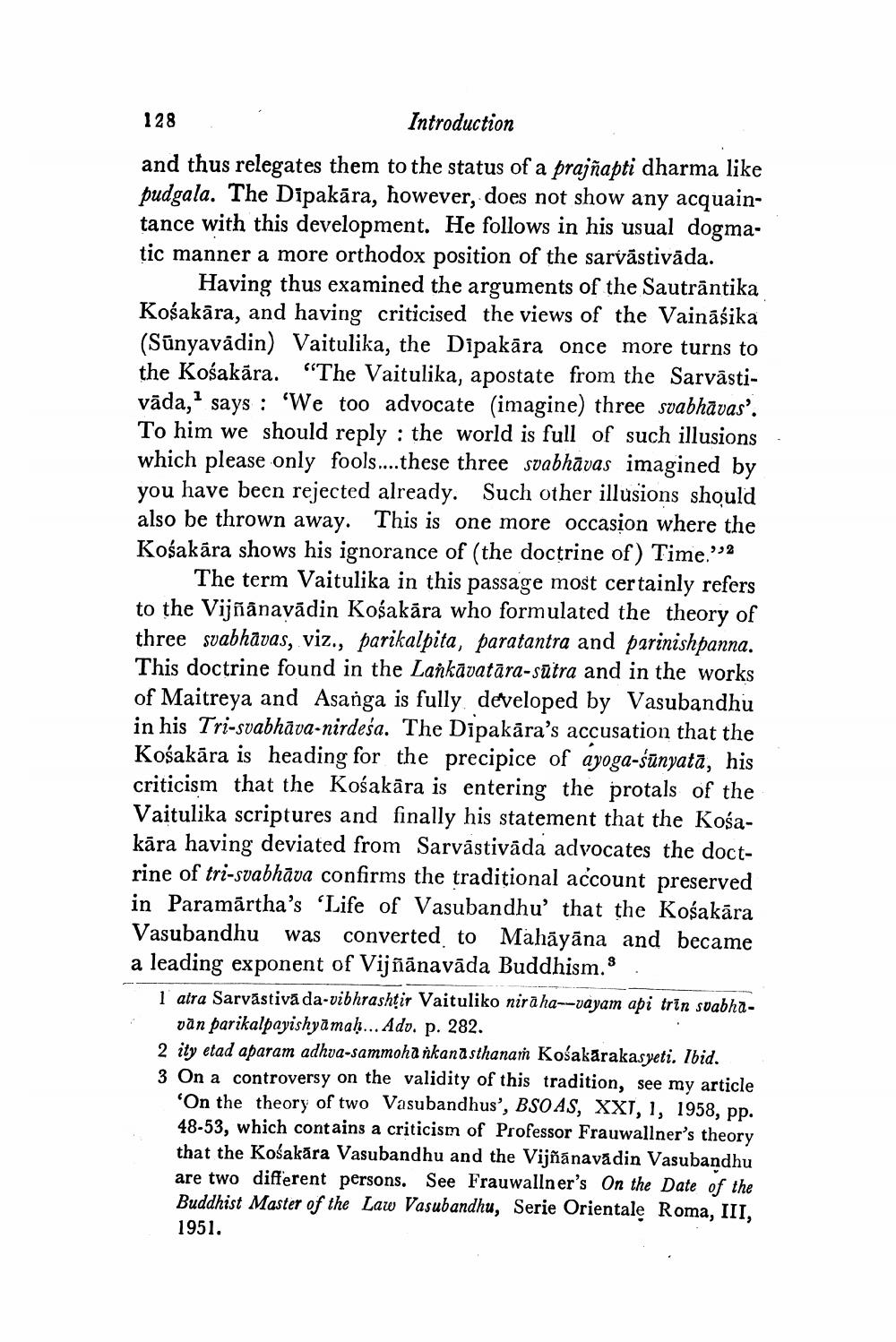________________ 128 Introduction and thus relegates them to the status of a prajnapti dharma like pudgala. The Dipakara, however, does not show any acquaintance with this development. He follows in his usual dogmatic manner a more orthodox position of the sarvastivada. Having thus examined the arguments of the Sautrantika Kosakara, and having criticised the views of the Vainasika (Sunyavadin) Vaitulika, the Dipakara once more turns to the Kosakara. "The Vaitulika, apostate from the Sarvastivada," says : 'We too advocate (imagine) three svabhavas'. To him we should reply : the world is full of such illusions which please only fools....these three svabhavas imagined by you have been rejected already. Such other illusions should also be thrown away. This is one more occasion where the Kosakara shows his ignorance of (the doctrine of) Time." The term Vaitulika in this passage most certainly refers to the Vijnanavadin Kosakara who formulated the theory of three svabhavas, viz., parikalpita, paratantra and parinishpanna. This doctrine found in the Lankavatara-sutra and in the works of Maitreya and Asanga is fully developed by Vasubandhu in his Tri-svabhava-nirdesa. The Dipakara's accusation that the Kosakara is heading for the precipice of ayoga-sunyata, his criticism that the Kosakara is entering the protals of the Vaitulika scriptures and finally his statement that the Kosakara having deviated from Sarvastivada advocates the doctrine of tri-svabhava confirms the traditional account preserved in Paramartha's 'Life of Vasubandhu' that the Kosakara Vasubandhu was converted to Mahayana and became a leading exponent of Vijnanavada Buddhism.8. 1 atra Sarvastiva da-vibhrashtir Vaituliko niraha--vayam api trin svabha van parikalpayishyamah...Ado, p. 282. 2 ity etad aparam adhva-sammoha nkana sthanan Kosakarakasyeti. Ibid. 3 On a controversy on the validity of this tradition, see my article 'On the theory of two Vasubandhus', BSOAS, XXI, 1, 1958, pp. 48-53, which contains a criticism of Professor Frauwallner's theory that the Kosakara Vasubandhu and the Vijna navadin Vasubandhu are two different persons. See Frauwallner's On the Date of the Buddhist Master of the Law Vasubandhu, Serie Orientale Roma, III, 1951.




